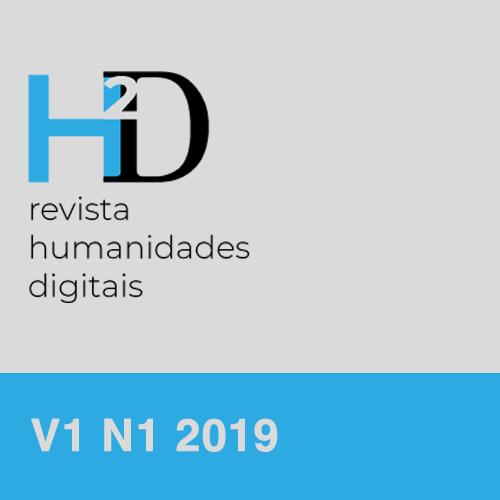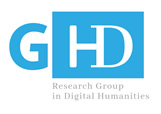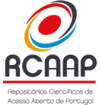Using Critical Media Literacy to support English Language Teaching and Practice
DOI:
https://doi.org/10.21814/h2d.242Palavras-chave:
Media literacy, New literacy studies, Ethnography, English languageResumo
Digital media can convey a tremendous amount of linguistic information about discourse patterns and grammatical structures as well as clues about social interaction and values in particular communities. Language students that develop their media literacy skills not only develop useful skills of communication and inquiry, but also enhance their understanding of social and cultural practices which can improve their access to the target language community. Students will often bring with them to the classroom their previous experiences of making meanings using digital tools and in digital environments, so there is a clear need for literacy provision to be better aligned with their practices in everyday life. This paper describes and discusses the outcomes of two different media literacy educational initiatives with ESOL learners at a further education (FE) college in the United Kingdom and university students in Italy. This paper will discuss how activities such as media analysis, curation, and production can be used to enhance English Language teaching and learning. It explains the rationale for focusing on media literacy in the language classroom and how these types of pedagogic activities can contribute to the development of emergent and productive ‘Third Spaces’ (Bhabha, 1994) for learners in different settings.
Downloads
Referências
Alvermann, D. E., Moon, J. S. & Hagood, M. C. (1999). Popular culture in the classroom: Teaching and researching critical media literacy. London: Routledge.
Bernstein, B. (1971). On the Classification and Framing of Educational Knowledge. In M. F. D. Young (Ed.), Knowledge and Control. New Directions for the Sociology of Education, 47-69. London: Collier-Macmillan.
Bhabha, H. J. (1994). Location of Culture. London: Psychology Press.
Council of the European Union. (2016). Council conclusions on developing media literacy and critical thinking through education and training. Brussels.
Darvin, R., & Norton, B. (2014). Transnational identity and migrant language learners: The promise of digital storytelling. Education Matters: The Journal of Teaching and Learning, 2(1), 55-66.
De Certeau, M. (1984). The Practice of Everyday Life, trans. Steven Rendall. Berkeley: University of
California Press.
Hall, S. (1982). The rediscovery of ‘ideology’: Return of the repressed in media studies. In Culture, society and the media, 61-95. London: Routledge.
Hamilton, M., Tett, L. & Crowther, J. (2012). More powerful literacies: An introduction. More
Powerful Literacies. Leicester: NIACE, 1-12.
Hobbs, R., & He, H. (2015), Seeing, Believing, and Learning to Be Skeptical: Supporting Language Learning Through Advertising Analysis Activities. TESOL Journal, 6, 447-475.
Intercultural and Linguistic Mediation. (n.d.). url: https://www.unibo.it/en/teaching/degree-programmes/programme/2013/8059
Ito, M., Horst, H. A., Bittanti, M., Stephenson, B. H., Lange, P. G., Pascoe, C. J., & Martínez, K. Z. (2009). Living and learning with new media: Summary of findings from the Digital Youth Project. MIT Press.
Ivanic, R., Edwards, R., Satchwell, C., & Smith, J. (2007). Possibilities for pedagogy in further education: harnessing the abundance of literacy. British Educational Research Journal, 33(5), 703-721.
Jenkins, H., Purushotma, R., Weigel, M., Clinton, K. & Robison, A. J. (2009). Confronting the
challenges of participatory culture: Media education for the 21st century. Boston: MIT Press.
Kellner, D., & Share, J. (2007). Critical media literacy, democracy, and the reconstruction of education. In D. Macedo & S.R. Steinberg (Eds.), Medialiteracy: A reader (pp. 3-23). New York: Peter Lang.
Kramsch, C. (2009). Third culture and language education. In L. Wei & V. Cook (Eds.), Continuum contemporary applied linguistics, 233–254. London: Continuum.
Lam, E. W. S. (2000). L2 literacy and the design of the self: A case study of a teenager writing on the Internet. TESOL Quarterly, 34(3), 457–482.
McDougall, J., Readman, M., & Wilkinson, P. (2018). The uses of (digital) literacy. Learning, Media and Technology, 43(3), 263-279.
McKinney, C., & Norton, B. (2008) Identity in language and literacy education. In B. Spolsky and F. Hult (eds) The Handbook of Educational Linguistics, 192– 205. London: Blackwell.
Moje, E. B., Ciechanowski, K. M., Kramer, K., Ellis, L., Carrillo, R., & Collazo, T. (2004). Working toward third space in content area literacy: An examination of everyday funds of knowledge and discourse. Reading research quarterly, 39(1), 38-70.
Norton, B. & Pavlenko, A. (2004). Gender and English Language Learners. Alexandria, VA: TESOL International.
Potter, J., & McDougall, J. (2017). Digital Media, Culture and Education: Theorising Third Space Literacies. Basingstoke: Palgrave MacMillan
Rogers, C. V., & Medley Jr, F. W. (1988). Language with a purpose: Using authentic materials in the foreign language classroom. Foreign Language Annals, 21(5), 467-478.
Routledge, P. (1996). The third space as critical engagement. Antipode, 28(4), 399-419.
Smith, P. & A. (2011). Cultural theory: An introduction. London: John Wiley & Sons.
Street, B. (2012). New literacy studies. In M. Grenfell, D. Bloome, C. Hardy, K. Pahl, J. Rowsell & B. Street, Language, Ethnography, and Education: Bridging New Literacy Studies and Bourdieu (pp. 27-49). London: Routledge.
Tomlinson, B. (2012). Materials development for language learning and teaching. Language Teaching, 45(2), 143-179.
Thomas, C. (2014). Meeting EFL Learners Halfway by Using Locally Relevant Authentic Materials. English Teaching Forum, 52(3), 14-23.
Westman, P. (2017a). Digital Ethnographic Pedagogy: Method as Third Space. (Unpublished doctoral dissertation). University of Wolverhampton, Wolverhampton, United Kingdom.
Westman, P. (2017b). Developing critical media literacy to promote language acquisition. Presentation given at TechLing 2017: Languages, Linguistics and Technology, Forlì, Italy.
Downloads
Publicado
Como Citar
Edição
Secção
Licença
Direitos de Autor (c) 2019 Digital Humanities Journal

Este trabalho encontra-se publicado com a Licença Internacional Creative Commons Atribuição 4.0.






